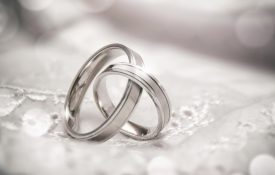-
Why extroverts fail, introverts flounder and you probably succeed
The Washington Post: Spend a day with any leader in any organization, and you’ll quickly discover that the person you’re shadowing, whatever his or her official title or formal position, is actually in sales. These leaders are often pitching customers and clients, of course. But they’re also persuading employees, convincing suppliers, sweet-talking funders or cajoling a board. At the core of their exalted work is a less glamorous truth: Leaders sell. So what kind of personality makes the best salesperson — and therefore, presumably, the most effective leader? Does this mean instead that introverts, the soft-spoken souls more at home in a study carrel than on a sales call,are more effective?
-
Can You Read the Face of Victory?
The New York Times: Picture a tennis player in the moment he scores a critical point and wins a tournament. Now picture his opponent in the instant he loses the point that narrowly cost him the title. Can you tell one facial expression from the other, the look of defeat from the face of victory? Try your hand at the images below, of professional tennis players at competitive tournaments. All were included in a new study that suggests that the more intense an emotion, the harder it is to distinguish it in a facial expression. Read the whole story: The New York Times
-
The culture of lying
The Miami Herald: While it is not possible to say whether Notre Dame football star Manti Te’o is a victim or perpetrator in the fake girlfriend hoax, his story, paired with cyclist Lance Armstrong’s admitted doping on Oprah Winfrey’s OWN network last week, represents someone foisting a big lie into the cultural mainstream. Researchers at Zhejiana Normal University in China and at Northwestern University found that lying “becomes more automatic upon training.” When people practice deception, it is simply easier to lie, in turn making it harder to differentiate from the truth. Read the whole story: The Miami Herald
-
How Effective Are Tactics Used on TV Shows to Treat Troubled Teens?
TIME: Terrifying teens by making them lie in coffins, forcing them to spend a night on a frigid street or a bare prison cell— these harsh measures are used in reality shows in an attempt to put delinquents back on the straight and narrow. But the strategies may make for better TV than treatment. ... “Time and time again, research finds these approaches to be innocuous at best and traumatizing at worst,” says John Norcross, professor of psychology at the University of Scranton who studies the effectiveness of psychological treatments.
-

21 Minutes to Marital Satisfaction
Marital satisfaction generally declines over time, but a brief writing intervention that helps spouses adopt a more objective outlook on marital conflict could help prevent couples from losing that loving feeling.
-
The psychology of winning – and losing
CBS News: The phrase "Win some, lose some" will be little consolation for the players and fans of whichever team loses in today's Super Bowl. Just ask somebody who's been there. Our Cover Story is reported by Susan Spencer of 48 Hours: In football-crazed Buffalo, the Bills are revered . . . and to this day, so is the number 12. Jim Kelly (whose jersey number is the only one the Bills have retired) proudly wore number 12 for eleven years, winning more than 100 games. Starting in 1990, he did something that no other quarterback in history has ever achieved: He led his team to FOUR straight Super Bowls. ...

